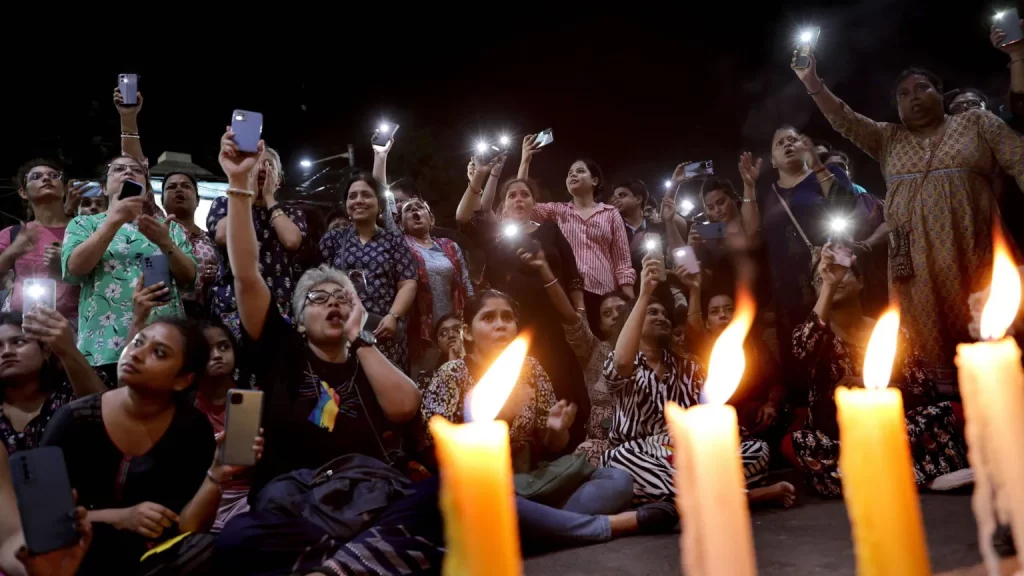Junior doctors in Kolkata are maintaining their protest against the rape and murder of a trainee doctor at a state-run hospital, defying a Supreme Court order to return to work. The strike, which began after the discovery of the 31-year-old victim’s body on August 9, has sparked nationwide outrage and put intense pressure on the West Bengal state government.

The protesting doctors have established a camp outside the state’s health department headquarters, presenting five key demands: justice for the victim, removal of senior police officials, and enhanced security for health workers. Despite the Supreme Court’s deadline passing on Tuesday evening, the doctors remain resolute in their stance.
Dr. Amrita Bhattacharya of the West Bengal Junior Doctors’ Front stated, “We are providing healthcare through telemedicine from the protest sites. They can’t replace the facilities of a hospital, and we are not even claiming that, but we are there to treat patients.”
The state government reports that 23 people have died due to lack of access to medical services during the strike. However, protesting doctors maintain that emergency services have not been affected, with senior doctors stepping in to fill the gap.
The case has drawn criticism towards the local administration and police for alleged lapses in handling the investigation. A hospital volunteer has been arrested in connection with the crime, which is now under investigation by a federal agency.
The protests have seen widespread support, with the Indian Express reporting over 300 rallies in Kolkata in the past month, including many midnight events organized by women. Demonstrators from various backgrounds have joined the doctors, displaying banners and posters seeking justice for the victim, referred to as “Abhaya” (fearless) due to laws prohibiting the naming of sex crime victims.

Dr. Sumantra Dey emphasized the unity of the protest movement, stating, “This is a united front. We might be Barcelona, we might be Manchester United, but here we are playing for India.” He dismissed allegations of political motivations behind the protests, insisting that participants come from all walks of life and various political affiliations in their personal capacities.
The state government’s attempts to negotiate have been unsuccessful, with doctors rejecting conditions for talks, including a demand to broadcast their meeting with Chief Minister Mamata Banerjee live on television.
The ongoing strike highlights the deep-seated concerns about safety and security in healthcare facilities. Dr. Bhattacharya expressed the fear permeating the medical community: “How can we go back to work knowing that people who have murdered our colleague might be roaming around free just next to us?”
As the standoff continues, the impact on healthcare services in West Bengal remains a pressing concern. The case has brought to the forefront issues of workplace safety for medical professionals and the need for comprehensive reforms in hospital security measures.
The protesting doctors’ determination to continue their strike until their demands are met presents a significant challenge for state authorities and underscores the broader issues of safety and justice in India’s healthcare system.



